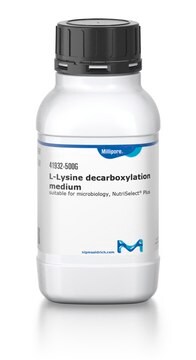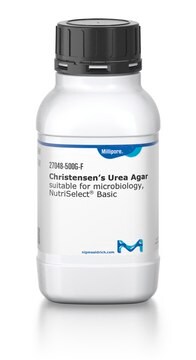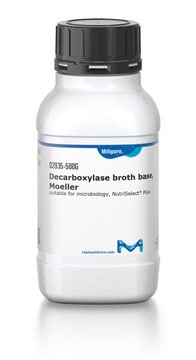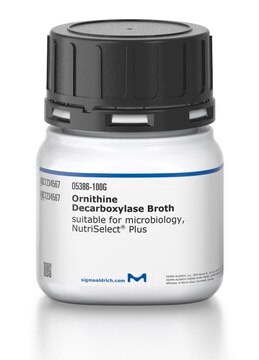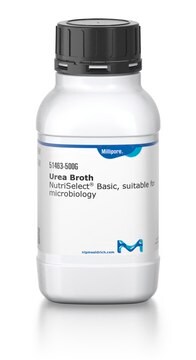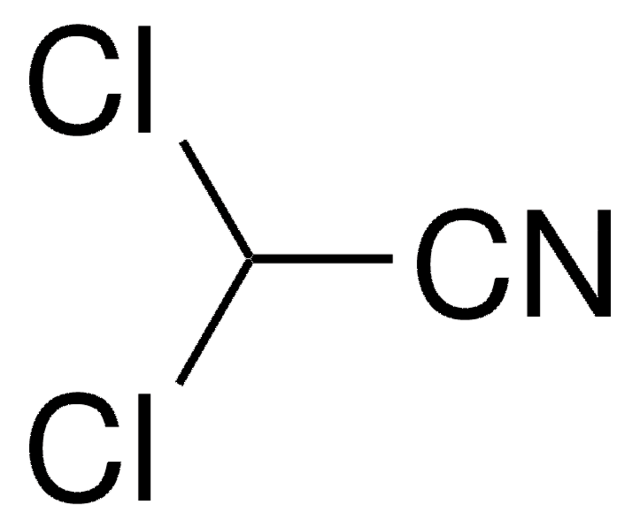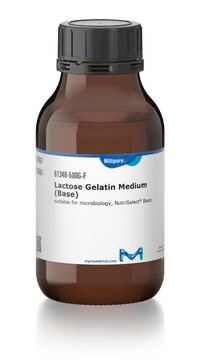66304
Lysine Decarboxylase Broth
NutriSelect® Plus, suitable for microbiology
Synonym(s):
LD Broth
About This Item
Recommended Products
Agency
according to ISO 10273:2017
Quality Level
sterility
non-sterile
form
powder
shelf life
limited shelf life, expiry date on the label
composition
bromo creol purple, 0.02 g/L
dextrose, 1 g/L
L-lysine hydrochloride, 5 g/L
peptic digest of animal tissue, 5 g/L
yeast extract, 3 g/L
manufacturer/tradename
NutriSelect® Plus
technique(s)
microbe id | specific enzyme detection: suitable
microbiological culture: suitable
final pH
6.8±0.2 (25 °C)
application(s)
clinical testing
environmental
food and beverages
microbiology
suitability
Enterobacter spp.
nonselective and differential for Salmonella spp.
nonselective and differential for enterobacteriaceae
Application
Preparation Note
Footnote
The designations basic, plus, or prime are added to indicate the quality control level, from basic quality control to standard QC plus to prime for full regulatory compliance.
Legal Information
Storage Class Code
11 - Combustible Solids
WGK
WGK 1
Flash Point(F)
Not applicable
Flash Point(C)
Not applicable
Personal Protective Equipment
Choose from one of the most recent versions:
Already Own This Product?
Find documentation for the products that you have recently purchased in the Document Library.
Customers Also Viewed
Articles
There are many other methods of detection to indicate the presence of E. coli. Review common tests and biochemical reactions for this contaminant.
Salmonella contamination is the second leading cause of food-borne illness worldwide. Controlling outbreaks of Salmonella is an important task for food regulators, restaurants and the food industry in general. The Salmonella family includes over 2,300 serotypes of bacteria, but two types, Salmonella enteritidis and Salmonella typhimurium, are responsible for about half of all human infections. Most outbreaks of Salmonella are traced back to dairy, poultry and meat products, but Salmonella can grow on nearly any food. Chicken, eggs and their derivative products are particularly high risk.
Our team of scientists has experience in all areas of research including Life Science, Material Science, Chemical Synthesis, Chromatography, Analytical and many others.
Contact Technical Service